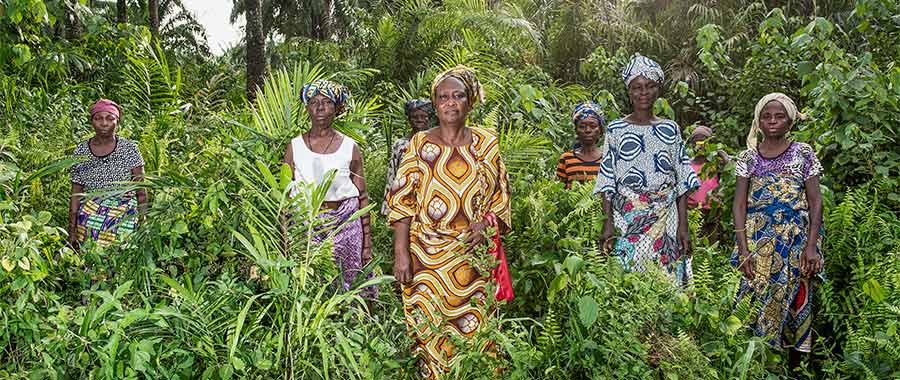In every corner of the globe, the role of women in agriculture is a critical yet often undervalued aspect of societal development. The Baha’i teachings, which emphasize the unity of humanity and the importance of gender equality, offer profound insights into the dynamics of agricultural practices through the lens of female empowerment. This article explores the theme “Half the Sky, Half the Land: The Power of the Female Farmer,” inviting readers to reflect on a playful question: What manifold contributions could a world that elevated female farmers realize? The challenges faced by these women are vast, yet they present an opportunity for transformative change.
The agricultural sector is increasingly recognized as a fundamental pillar of economic stability, food security, and sustainable development. Women, who constitute a significant portion of the global agricultural workforce, hold the potential to enhance productivity and contribute to poverty alleviation substantially. Despite this, women farmers frequently grapple with systemic disparities that limit their access to resources, education, and decision-making power.
Integral to the Baha’i perspective is the assertion that the empowerment of women is essential for the advancement of civilization. This tenet underlines the intrinsic value of female farmers in addressing food scarcity and fostering resilience within their communities. Women’s roles in agriculture extend beyond mere production; they are often custodians of traditional knowledge related to sustainable practices, biodiversity, and local varietals that are paramount for ecological balance.
Female farmers face a myriad of challenges exacerbated by cultural, economic, and political factors. In many regions, societal norms persist that prioritize male authority over land ownership and financial capital. This relegation to secondary status not only undermines the contributions of women but also perpetuates cycles of poverty. The Baha’i teachings call for an egalitarian approach, advocating for equal access to land, training, and technology for both genders.
Furthermore, education emerges as a cornerstone for empowerment. Girls and women with higher educational attainment are more likely to participate actively in agricultural sectors, leading to enhanced productivity and innovation. Baha’is are encouraged to support initiatives aimed at educating women, thereby unlocking their potential as farmers and decision-makers. This is especially significant in the context of climate change, where educated women can lead sustainable practices and advocate for environmental stewardship.
Yet, the question looms: how can communities begin to dismantle the barriers that inhibit female farmers from realizing their full potential? The Baha’i teachings suggest that social and economic systems must evolve to accommodate and prioritize gender inclusivity. This evolution requires collective action, community engagement, and supportive policies that empower women farmers. The creation of cooperative societies, where resources and knowledge are shared, exemplifies a viable model for fostering strength and resilience among female farmers.
Particularly noteworthy is the role of technology in transforming agricultural practices. The advent of digital platforms offers unprecedented opportunities for female farmers to gain access to markets, information, and global networks. Mobile technology can bridge gaps in education and provide women with real-time data on weather patterns, crop prices, and pest management. Consequently, technology emerges not merely as a tool, but as a catalyst for systemic change. By harnessing these advancements, female farmers can assert autonomy over their livelihoods.
Moreover, the Baha’i principle of consultation forms an essential process for promoting equity and inclusiveness within agricultural communities. Engaging women in dialogues about agricultural practices allows for diverse perspectives and solutions to flourish. This participatory approach can unearth innovative methods that resonate with the specific needs of female farmers, thereby enhancing their economic viability.
In light of these discussions, one might ponder: what happens when female farmers are not given their due recognition? Without equitable support and acknowledgment, vital agricultural knowledge and practices risk becoming stagnant and ineffective. The ramifications of neglecting female farmers extend beyond the immediate impact on food production; they threaten the very fabric of community resilience and sustainability.
As communities grapple with the challenges of food insecurity and environmental degradation, the urgency of empowering female farmers cannot be overstated. The Baha’i teachings illuminate pathways through which gender equality can be achieved in agriculture, thus setting a precedent for other sectors. Collaborative efforts to elevate women’s voices and capacities can catalyze significant progress toward gender equity and sustainability.
In closing, the journey toward recognizing “Half the Sky, Half the Land: The Power of the Female Farmer” is inexorably intertwined with the aspirations of humanity for a just and sustainable future. Collective awareness, concerted action, and the fostering of inclusive practices are imperative to dismantling systemic barriers. Only when society embraces the contributions of those who cultivate the land can it truly claim to honor the delicate balance of life sustenance and equitable progress.
